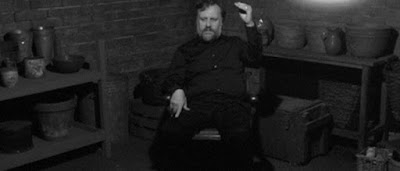 Mutual Appreciation
Mutual Appreciation
d. Andrew Bujalski, 2005
Taking what he started with Funny Ha Ha (2003), director Andrew Bujalski expands on his kind of low key style of filmmaking with the brilliant and thoroughly engrossing sophomore effort
Mutual Appreciation. It's really hard to write about a film that so completely achieves what it tries to do. Basically,
Mutual Appreciation is a collection of really great scenes connected not so much by plot or story as with an overall mood. Alan (Justin Rice) is an aspiring rock star who just moved to New York City. He hangs out with his friends, Lawrence (Bujalski) and his girlfriend Ellie (Rachel Clift), and just kind of drifts in and out of very organic--though very well written and improvised--situations.
Mutual Appreciation is also the kind of movie that people either fall in love with or utterly despise. I obviously belong to the former as I dont think I've seen many American independent films that are as meticulously composed and expertly crafted as this one. Bujalski's 16mm black-and-white compositions are some of the film's best assets, as is his masterful avant-garde influenced editing. Many have compared his filmmaking to that of John Cassavetes, and not without reason. It's hard to watch certain scenes of this film without automatically recalling
Shadows (1959) or even later stuff like
The Killing of a Chinese Bookie (1976). With
Mutual Appreciation, Bujalski emerges as the arguably the most talented director of his generation.
Note: People have also compared Bujalski's style to that of Eric Rohmer's, a director whose films I've unforgivably yet to discover. That ends today; I'm pretty sure I'll be watching
My Night at Maud's (1969) later and a review will follow thereafter.








